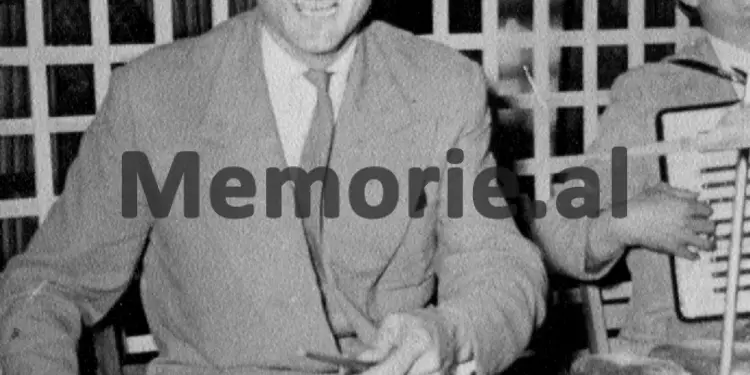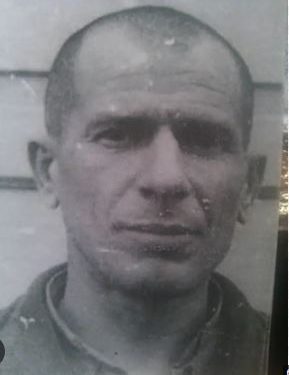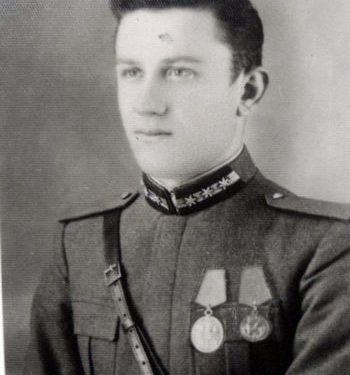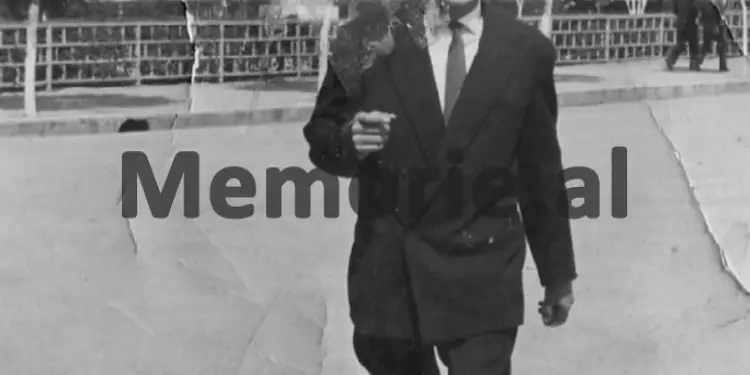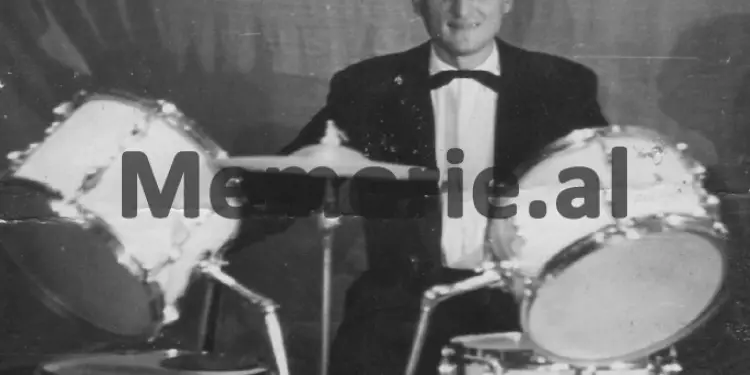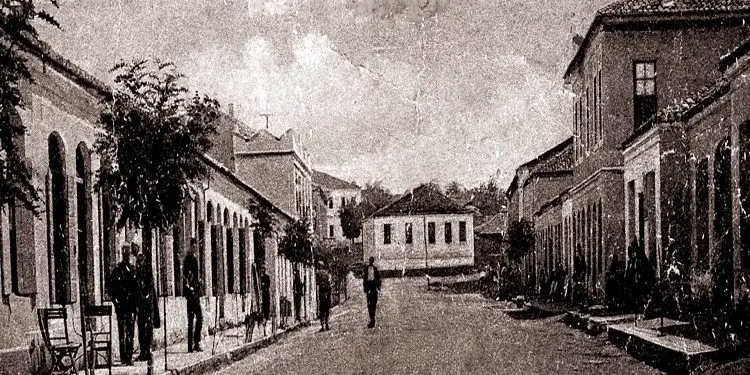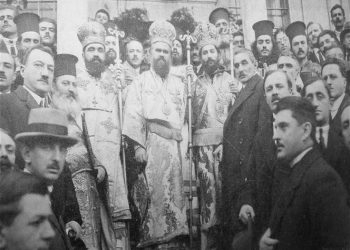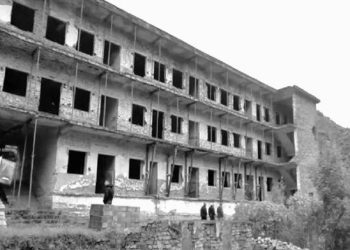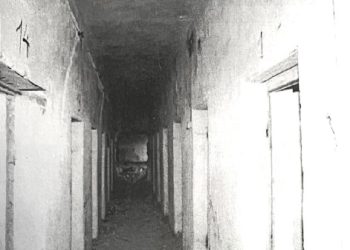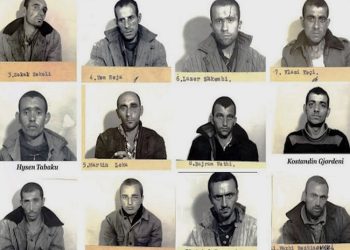From Agim Musta
Part Eighteen
Memorie.al / On the fourth anniversary of the passing away of the well-known historian, researcher, writer and publicist Agim Musta, (July 24, 2019), former political prisoner, his daughters Elizabeta and Suela, gave him the right to exclusivity for the publication, by the online media Memorie.al, of one of the author’s most prominent publications, such as the ‘Black Book of Albanian Communism’. This work contains numerous data, evidence, facts, statistics and arguments unknown to the general public, on communist crimes and terror in Albania, especially against intellectuals, in the period 1945-1991. The publication for the first time of parts of this book is also the realization of one of the bequests of the historian Agim Musta, who, from the beginning of 1991 until he passed away, for nearly three decades was engaged with all his powers, working to raise collective memory, through book publications and publications in the daily press. All that voluminous work of Mr. Agim Musta, concretized in several books, is a contribution of great value to the disclosure of the crimes of the communist regime of Enver Hoxha and his successor, Ramiz Alia. A good part of the publications of Mr. Agim Musta, is also translated into English. Thanking the two daughters of the late Musta, who chose Memorie.al, to commemorate their father, from today we are starting the publication, part by part, of the “Black Book of Albanian Communism”.
Continues from last issue
-Portraits of fellow sufferers-
(1945-1991)
- Xhemile Trimi
Knowing that the prosecutor is present at every execution, I asked fellow sufferer Dervish Sulos, former prosecutor in the district of Durrës, during the communist dictatorship, to tell me some exciting event. The dervish, after thinking a little, told me:
“I have participated in many executions, but I will not forget until the day I die, the execution of Xhemile Trimi, from the Four Roads of Shijak. Her husband, Beqir Trimi, was killed by the forces of the People’s Protection Division.”
It was said that Beqiri was a courier for fugitives, who were operating at that time in the Durrës area. A D.M.P. patrol killed him near the Sallmone Bridge and his body was thrown into Erzen. Xhemilja was left a widow, with a little daughter.
She was beautiful and not yet 40 when her husband killed you. Although many men were attracted to her, she remained honest and with much effort barely made a living, for herself and her orphaned daughter. Years passed and the girl, at the age of 17, stood out for her beauty in the Four Roads of Shijak.
He often went up and down to look for work, but no one would hire him when they found out who he belonged to. One day, in the work office, he caught the eye of Lieutenant Nas, the operative of the area. He gazed at her lustfully, never taking his eyes off her perky breasts. When he left the office, Lieutenant Nas asked him who he was, what he was looking for and where he lived.
She briefly answered the operator’s questions and wanted to leave. Nasi took him by the arm and with a benevolence of conquest, shook his hand, promising that he would fix him at work. Before they parted, he made an appointment for the next day, in a place away from people’s eyes. After several meetings, always promising to set her up at work, he began to sexually exploit her. They had the meeting place in some grass hills, near Xemila’s hut. In the late hours of the night, the operator approached the millers and with a signal that he gave by hissing, he stopped the girl from leaving the hut. She, very carefully, so as not to wake up her mother, went out the door like a cat and went to the millers. The operative, after venting his desires, allowed him to return to the hut, ordering him not to open his mouth to anyone. Xhemilja fell asleep as if dead from the heavy work, but one night she spotted him when he was returning to the hut.
“Where were you?” – said Xhemilja to her daughter.
“I heard a noise from the coop and came out to stop the chickens from taking us”
– answered the girl.
From the trembling voice of the girl, Xhemilja understood that it was not a matter of chickens, but something else.
“Look! Don’t you start playing with your tail with some force, because I will cut off your head with a knife”?!- said Xhemilja and turned to the other side, but he did not fall asleep.
After a few days, while sleeping at night, he reached out from the girl’s mattress, but only grabbed the quilt. He woke up immediately and lit the candle. The girl was not in the hut. The blood rushed to his head, he took the nagache and went outside. The moon was full. Fifty meters away from her were the millers.
“There will be whore”! He thought to himself and approached slowly – slowly, tiptoeing. Behind the second miller he heard whispers. He came closer and made out only the outlines of two bodies close to each other. He raised the naga and, with all the strength he had, struck at their heads.
It struck once, twice, three times, with lightning speed. The victims did not have time to do either ah or ooh. He threw down the bloody naga and knelt down to see who it was he had killed. He recognized only the daughter, and the other, from the hat and the revolver that were his horn, it was understood that he would be an officer. He returned to the hut and sat down by the hearth. He woke up and spent it drinking coffee and smoking. As soon as the day dawned, he got dressed and went to the house of the chairman of the People’s Council of the village. He spoke to him by name and asked to go to the gate. He hurriedly dressed and went outside. The sight of Xhemila scared him.
“What happened Xhemile that you came so early”?! – said the chairman of the People’s Council. “I killed my whore together with my lover. I don’t know him, but he seems to be an officer. You have both made fritela behind the millers. Report to the government that I did mine.
The Chairman of the Council rolled his eyes and ran to the police station, while Xhemilja returned to her hut. It was not long before the head of the Internal Affairs Branch, the chief investigator and many Security officers arrived at the scene. A report was drawn up and the lifeless body of the operative, wrapped in a blanket, was thrown into a covered truck. Then, everyone, with the chairman of the Council in front, went to Xhemile’s hut.
“Comrade Kopi, the head of the Interior Branch, opened the door of the hut by kicking it. With a revolver in his hand, he addressed Xhemila: “Do you know, my witch, who you have killed”?! “My whore, with a street fist” – answered Xhemilja, without batting an eye. “Tie up the criminal!” – Comrade Kopi ordered.
Meanwhile, “Gazi” of the Internal Branch, had approached the hut. They tied Xhemila’s hands from behind and killed her in the last part of “Gaz”, held by two policemen by the arms. The investigation and the trial were conducted with an accelerated process. Xhemilja was sentenced to death by firing squad. She received the decision very coolly and refused to appeal to the Supreme Court, or to ask for mercy from the Presidium of the People’s Assembly. After a month came the order to execute the decision.
“I was notified by phone that at ten o’clock at night I should be in the cells of the investigation. There I was waiting for the head of the elimination of crimes, the doctor of the Branch and two non-commissioned officers of the execution squad. Two “Gas” were introduced into the yard Degas. Xhemila was taken out of the cell with his hands tied from behind. In one of the “Gaz”, the crime eradication officer, Xhemilja, and two non-commissioned officers of the firing squad got into the other. I got into the other together with the doctor from Degas.
The cars sped off in the direction of Porto Romano. Somewhere, they turned into a dead end and after a couple of hundred meters, they stopped. Near a small stream, a shallow pit had been dug. The place was lit by car headlights. They took Xhemila down from “Gaz” and brought her to the edge of the pit. The crime prevention officer communicated the execution decision and ordered to blindfold him. Xhemilja raised her head and with a shrill voice, which froze our blood, cursed us:
“Shoot, you little bushtrash puppy! Xhemile the Brave is not afraid of death”. Two Kalashnikovs fired at her. She fell into the pit, like a bloody log. The non-commissioned officers, with a genie shovel, threw several shovelfuls of mud over her body and rolled some stones with their feet. I was so confused that I didn’t even ask “kolpo di gracien”. I have been present at many executions. I have seen men with ear-length mustaches and professional killers, who trembled before execution, but none like Xhemile Trimi”, concluded the tragic story, the former Durrës District Prosecutor, Dervish Sulo!
- Skeleton
In cell no. 9 of the Burrel prison, Gjeloshi was standing in front of me. When I met him, in 1962, he had served 15 years in prison. He had another 10 years to suffer if he lived.
Gjeloshi was from Dukagjini and, in 1947, after his capture by the Security forces, he was sentenced to death for “terrorist acts”. In fact, the only sin he had committed was refusing to do military service. To escape arrest, he took the mountain roads and joined some friends, enemies of the communist regime. For seven months, with bread and without bread, he hid in the caves, followed closely by the Security forces.
Zoi Themeli and Nesti Kopali, heads of the Internal Affairs Branch of Shkodra, ordered the burning of the River Bank School and the killing of a teacher. They put the blame for this crime on the fugitives. It never occurred to the simple villagers of Dukagjin, that these horrors were committed by the “People’s Power” itself, to arouse hatred towards the anti-communist fugitives. How could the simple peasants understand that those intrigues and disgraces were done by those who should administer justice?
Not even foreign invaders had committed such monstrous crimes. After seven months, Gjelosh was arrested for burning down the school and killing the teacher. The Supreme Court returned the sentence, with 25 years of hard imprisonment, without the right to benefit from amnesties. No one had knocked on the prison door for Gjelosh. It was over 1.80 cm tall and the walk had turned him into a bag of bones. The parts of the skull were also clearly visible. His eye sockets were too deep. His hand, with its long, thin fingers, resembled a metal pitchfork. What made you shudder was the toothless, toothless mouth that, when it opened, looked like a prehistoric shell.
Odhisa Pascal’s “Hungry” looked much less hungry than the living Gjelosh. Only his eyes were not lost. They, in that gaunt, elongated face, seemed enormously magnified. He stayed in his place all day, staring at one point. He never spoke to you without speaking to you. When you asked him about something, he answered with “yes” or “no”. One day, I had a meeting with the family, and among other foods, they brought me several pieces of meat, along with the prison “juice” that was given to us for lunch. This liquid, in which a few grains of rice or gros were floating. Gjeloshi and many other prisoners did not eat it with a spoon, but brought it back to the prison yard. They had already eaten the bread ration in the morning.
I took out the meat wrapped in paper and began to eat, accompanied by the juice of the lunch. Gjelosh fixed those eyes that looked like fear on the piece of meat. His eyes, as if emitting laser beams, and the meat stuck in my throat. I barely noticed him, but he kept looking at the piece of meat that I was holding in my hand. I stopped eating and put it on the tray next to the pillow. When we went out into the yard for the afternoon airing, I took the paper-wrapped bundle and put it in my pocket. I stopped Gjelosh and said:
“By God, don’t take my hand back. Eat this piece of meat, for God knows how long you haven’t tasted it” and without getting his confirmation, I put all the patches in his jacket pocket. “You made me ashamed, man, but I won’t take it back, because you put me in a difficult position”!
- Murder on New Year’s Eve
It was a moonless and starless night. At the border checkpoint of Hani Hoti, there was movement. A handcuffed man got out of a car from behind. Two shadows accompanied him towards the Albanian land. The unfortunate person is put on a “Gaz” which is heading towards Shkodra with a deafening roar. He was a doctor, a virtuoso accordion artist, 28-year-old Gramoz Omari. He never separated the stethoscope and the accordion from himself.
“As a doctor, I will try to cure people, as an artist, their souls.” This is how Gramozi often expressed himself, among his friends and colleagues. When he became convinced that he was being eavesdropped, he escaped to gain his freedom. The UDB held him hostage, to use for their nefarious purposes. They exchanged him with an unfortunate Albanian from across the border. “Ustallars and apprentices”, who were insulting each other during the day, were in complete accord with each other at night. Macabre game against the Albanian nation.
The investigators waited for Gramoz, like a fat prey. On his back, they experimented with the most criminal methods of the communist arsenal. By order of the dictator, the “People’s Court” sentenced him to death. Someone from the family circle asked Enver Hoxha to be kind to Gramoz.
The dictator was enraged with anger: “Omarat, we have killed them and we will kill them. I have ordered that Eqerem” be exiled as a family to the Baltovinas of Myzeqe. If they didn’t stay still, prison and the bullet await them!” Gramozi, tied hands and feet, was stoically waiting for death in the dark cell. He was convinced that the dictator would not forgive him.
“Death doesn’t scare me; I’m as innocent as an angel. I have only one wish: to meet my parents and brothers before the execution,” Gramozi told an M.P. official. Internal. His request could not be heard by the deaf ears of the “crocodile”. Even his execution was set to be spectacular.
At midnight on New Year’s Day, 1968, when every Albanian family toasted to joy and better days, the gun battery, in the death range of Zalli i Kiri, took the life of the doctor and virtuoso artist, Gramoz Omar.
The word got out and spread all over Albania. His parents mourned him. The brothers cried. Friends and comrades, wherever they were, trembled.
- The Albanian who suffered 43 years of imprisonment
I don’t believe there is any other country in the world, apart from Albania, where a man has suffered 43 years of imprisonment, without doing any harm. No sane human mind can conceive the drama of Albanian prisons, full of paradoxes and labyrinths. It often happened that someone who took human life, after serving a few months in prison, won freedom and all the previous rights. Another, who had not killed a single chicken, was sent to prison for decades, just because he thought of “breaking the thorn” to gain freedom.
There were also many others, who had not thought of anything, but were sacrificed by the dictatorship, to frighten others. Thousands of innocent people suffered the communist ordeal and died in the dark cells of prisons, or in the mud of the swamps. But who was the martyr of endless suffering, who, after 43 years of imprisonment, gave his life in Albanian prisons? This is Sami Dangëllia, born in 1920, in Menkulas village of Devolli.
He grew up like all young devils, earning his living by the sweat of his brow. Despite his burning desire to get an education, he only completed primary school. He had participated in the “National Front” and for this he was sentenced in 1945, with 25 years of imprisonment. After serving 15 years, he was released, but at the door of the prison “Gaz” of the Security was waiting for him. From a smaller prison, he was sent to a bigger prison, to the internment camp, in Gradishte.
Sami despised that release, so he decided to escape from Albania. After many sufferings and adventures, he was captured near the Greek border. Again the investigator, again torture and again a new sentence, with 25 years in prison. This time, Sami would not work for draining the swamps, but in the deep galleries of the mine – the prison of Spaç.
The Spaç Revolt of 1973 found Sami crippled by suffering, but with a burning heart. For three days and three nights he fought together with fellow sufferers, with the mercenary forces of the dictatorship. When the revolt was suppressed with fire and iron, Sami was sentenced for the third time, with 25 years in prison.
Although he was convinced that he would not make it through the prison door alive, he still remained an ardent anti-communist propagandist. Even when he reached the age of 60, they did not remove him from forced labor. They sent him to the prison camp of Borsh, to open the terraces of Bregdet.
The dictatorship had decided that Sami should die with a pickaxe in his hand. No effort was made to cure the “eternal enemy”! Exhausted by endless suffering, Sami left his co-sufferers with dignity and love, on a spring day in 1987. The only bequest he left to his friends, before closing his eyes, was: “When Albania becomes free, to find my bones and bury them in Menkulas of Devolli”. Memorie.al




